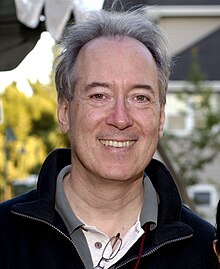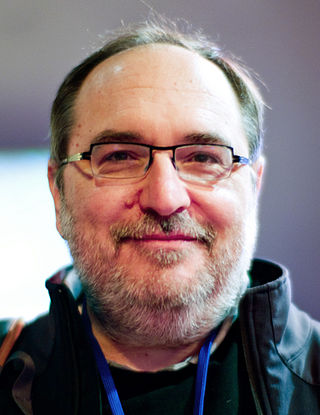
Dave Winer is an American software developer, entrepreneur, and writer who resides in New York City. Winer is noted for his contributions to outliners, scripting, content management, and web services, as well as blogging and podcasting. He is the founder of the software companies Living Videotext, Userland Software and Small Picture Inc., a former contributing editor for the Web magazine HotWired, the author of the Scripting News weblog, a former research fellow at Harvard Law School, and current visiting scholar at New York University's Arthur L. Carter Journalism Institute.
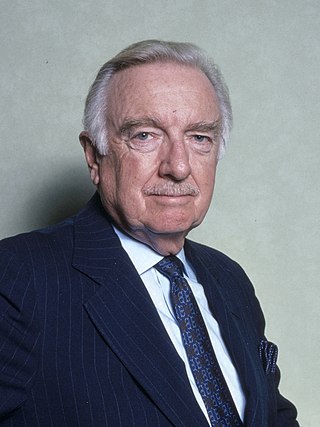
Walter Leland Cronkite Jr. was an American broadcast journalist who served as anchorman for the CBS Evening News for 19 years, from 1962 to 1981. During the 1960s and 1970s, he was often cited as "the most trusted man in America" after being so named in an opinion poll. Cronkite received numerous honors including two Peabody Awards, a George Polk Award, an Emmy Award and in 1981 was awarded the Presidential Medal of Freedom by President Jimmy Carter.
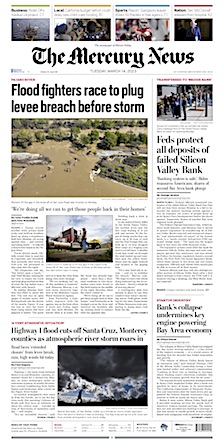
The Mercury News is a morning daily newspaper published in San Jose, California, in the San Francisco Bay Area. It is published by the Bay Area News Group, a subsidiary of Media News Group which in turn is controlled by Alden Global Capital, a vulture fund. As of March 2013, it was the fifth largest daily newspaper in the United States, with a daily circulation of 611,194. As of 2018, the paper has a circulation of 324,500 daily and 415,200 on Sundays. As of 2021, this further declined. The Bay Area News Group no longer reports its circulation, but rather "readership". For 2021, they reported a "readership" of 312,700 adults daily.
Open-source journalism, a close cousin to citizen journalism or participatory journalism, is a term coined in the title of a 1999 article by Andrew Leonard of Salon.com. Although the term was not actually used in the body text of Leonard's article, the headline encapsulated a collaboration between users of the internet technology blog Slashdot and a writer for Jane's Intelligence Review. The writer, Johan J. Ingles-le Nobel, had solicited feedback on a story about cyberterrorism from Slashdot readers, and then re-wrote his story based on that feedback and compensated the Slashdot writers whose information and words he used.

Citizen journalism, also known as collaborative media, participatory journalism, democratic journalism, guerrilla journalism, grassroots journalism, or street journalism, is based upon members of the community playing an active role in the process of collecting, reporting, analyzing, and disseminating news and information. Courtney C. Radsch defines citizen journalism "as an alternative and activist form of news gathering and reporting that functions outside mainstream media institutions, often as a response to shortcomings in the professional journalistic field, that uses similar journalistic practices but is driven by different objectives and ideals and relies on alternative sources of legitimacy than traditional or mainstream journalism". Jay Rosen offers a simpler definition: "When the people formerly known as the audience employ the press tools they have in their possession to inform one another." The underlying principle of citizen journalism is that ordinary people, not professional journalists, can be the main creators and distributors of news. Citizen journalism should not be confused with community journalism or civic journalism, both of which are practiced by professional journalists; collaborative journalism, which is the practice of professional and non-professional journalists working together; and social journalism, which denotes a digital publication with a hybrid of professional and non-professional journalism. Seungahn Nah and Deborah S. Chung say in their book "Understanding Citizen Journalism as Civic Participation" that citizen journalism is "highly embedded in local communities where community residents engage in day-to-day routines of community storytelling about local politics, public affairs, community events, neighborhood issues, schools, public transportation, land uses and environments, and much more."
We the Media is a book written by Dan Gillmor, published in 2004 by O'Reilly (ISBN 0596007337).
Following a crackdown on Iranian media beginning in 2000, many Iranians turned to weblogging to provide and find political news. The first Persian language blog is thought to have been created by Hossein Derakhshan,, in 2001. Derakhshan also provided readers with a simple instruction manual in Persian on how to start a blog. In 2004, a census of blogs around the world by the NITLE found 64,000 Persian language blogs. In that year the Islamic government also began to arrest and charge bloggers as political dissidents and by 2005 dozens of bloggers had been arrested.
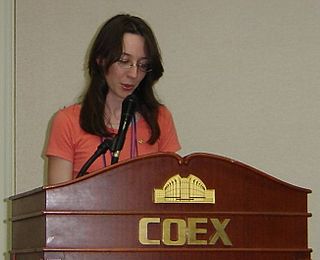
Citizen media is content produced by private citizens who are not professional journalists. Citizen journalism, participatory media and democratic media are related principles.

Crooks and Liars is a progressive political news blog founded by John Amato. The website has been described as hyperpartisan.

Rebecca MacKinnon is an author, researcher, Internet freedom advocate, and co-founder of the citizen media network Global Voices. She is notable as a former CNN journalist who headed the CNN bureaus in Beijing and later in Tokyo. She is on the board of directors of the Committee to Protect Journalists, a founding board member of the Global Network Initiative the founding director of the Ranking Digital Rights project at the New America Foundation's Open Technology Institute, and is the Vice President for Global Advocacy at the Wikimedia Foundation.
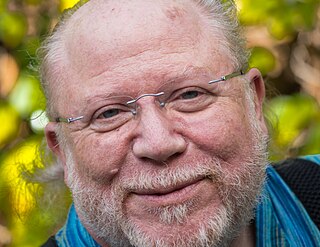
Eric Newton is an American journalist, writer and media consultant.
Participatory media is communication media where the audience can play an active role in the process of collecting, reporting, analyzing and disseminating content. Citizen / participatory journalism, citizen media, empowerment journalism and democratic media are related principles.

The Walter Cronkite School of Journalism and Mass Communication, is one of the 24 independent schools at Arizona State University and is named in honor of veteran broadcast journalist Walter Cronkite. The school, which is located at the downtown Phoenix campus, offers several undergraduate and graduate programs in journalism, and in fall 2011, launched its first doctoral program in journalism and mass communication.
The First Amendment Coalition (FAC) is a nonprofit public interest organization committed to freedom of speech, more open and accountable government, and public participation in civic affairs. Founded in 1988, FAC's activities include "test case" litigation, free legal consultations on First Amendment issues, educational programs, legislative oversight of bills in California affecting access to government and free speech, and public advocacy. In 2016, lawyer and journalist David Snyder became the organization's executive director.
While the term "blog" was not coined until the late 1990s, the history of blogging starts with several digital precursors to it. Before "blogging" became popular, digital communities took many forms, including Usenet, commercial online services such as GEnie, BiX and the early CompuServe, e-mail lists and Bulletin Board Systems (BBS). In the 1990s, Internet forum software, such as WebEx, created running conversations with "threads". Threads are topical connections between messages on a metaphorical "corkboard". Some have likened blogging to the Mass-Observation project of the mid-20th century.

Erik Möller is a German freelance journalist, software developer, author, and former deputy director of the Wikimedia Foundation (WMF), based in San Francisco. Möller additionally works as a web designer and previously managed his own web hosting service, myoo.de. As of 2022, he was VP of Engineering at the Freedom of the Press Foundation.
MacInTouch is a daily news and information website that provides independent coverage of Apple's Mac and iOS platforms, along with other topics such as security and privacy, networking, and technological innovation. MacInTouch's moderated forums provide technical analysis, problem-solving and news from the community. MacInTouch also provides product updates and occasional product reviews.
Brock N. Meeks is an American investigative journalist. He founded the online publication CyberWire Dispatch in 1994 and helped pioneer the world of online journalism. At its peak, Meeks estimated that CyberWire Dispatch was distributed to more than 800,000 readers via mailing lists and newsgroups. At the height of his online career, Meeks was "the most widely read reporter in cyberspace" according to J. D. Lasica. CyberWire Dispatch officially ceased publication in early 2004.
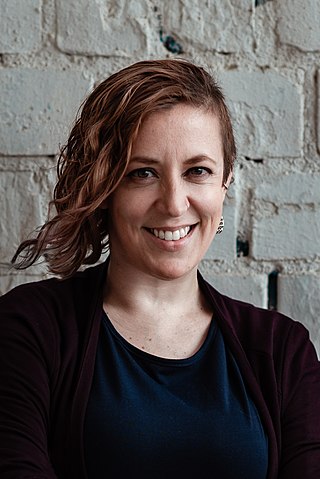
Jillian C. York is an American free-expression activist and author. She serves as Director of International Freedom of Expression at the Electronic Frontier Foundation (EFF), and a founding member of Deep Lab. She is the author of Silicon Values: The Future of Free Speech Under Surveillance Capitalism and Morocco - Culture Smart!: the essential guide to customs & culture.
The National Center on Disability and Journalism (NCDJ) provides resources and support to journalists and communications professionals covering disability issues. The center is headquartered at the Walter Cronkite School of Journalism and Mass Communication at Arizona State University.
